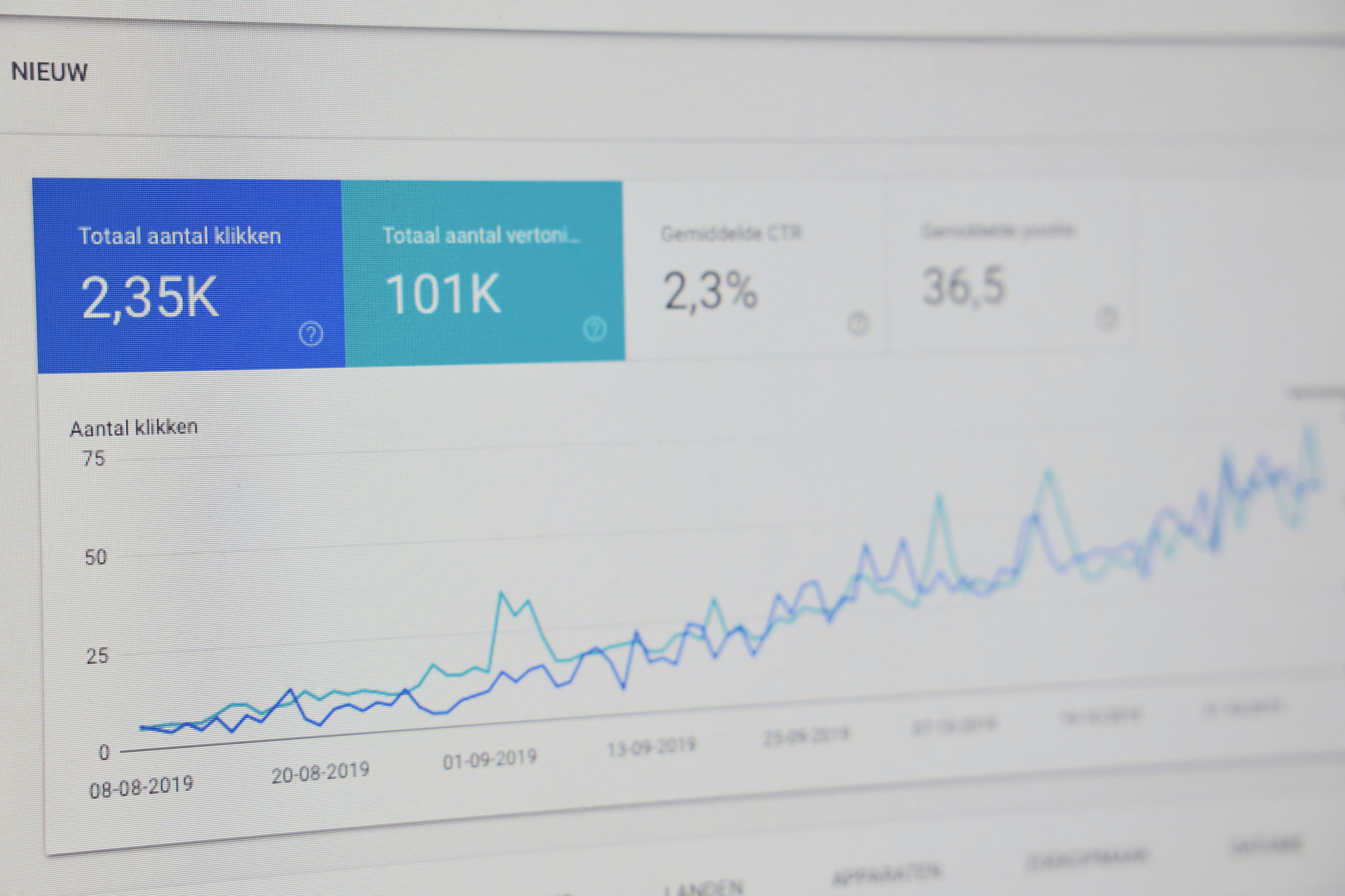Introduction

In today's digital age, understanding the basics of web marketing is crucial for businesses looking to thrive in the online landscape. As more consumers turn to the internet for their purchasing decisions, the role of digital marketing has become increasingly important. Key components of online marketing, such as social media, content marketing, and SEO, play a vital role in reaching and engaging target audiences.
Understanding the Basics of Web Marketing
Web marketing encompasses all promotional efforts done through digital channels to reach and engage with potential customers. It involves leveraging various online platforms and strategies to promote products or services and drive sales.
Exploring the Role of Digital Marketing
Digital marketing refers to the use of digital technologies to promote products or services. It includes various tactics such as email marketing, social media marketing, and search engine optimization (SEO) to connect with potential customers.
Key Components of Online Marketing
Online marketing and advertising involve a range of activities aimed at promoting products or services through digital channels such as websites, search engines, social media platforms, and email campaigns. These key components are essential for businesses looking to establish a strong online presence and reach their target audience effectively.
Defining Web Marketing

Web marketing, also known as online marketing or digital marketing, has evolved significantly in the digital age. With the rise of the internet and social media, traditional marketing strategies have been adapted to fit the online landscape. Companies like Appsite have recognized the importance of reaching their target audience through digital channels, leading to a shift in focus from traditional advertising to online promotion.
The Evolution of Marketing in the Digital Age
The evolution of marketing in the digital age has been marked by a shift towards online platforms. Traditional methods such as print ads and television commercials have given way to digital advertising through websites, social media, and search engines. Appsite has embraced this change by leveraging digital marketing strategies to reach a wider audience and drive business growth.
Understanding the Concept of Digital Marketing
Digital marketing encompasses a wide range of tactics aimed at promoting products or services using digital technologies. This includes email marketing, social media advertising, content creation, and search engine optimization (SEO). Appsite understands that digital marketing is essential for establishing a strong online presence and engaging with potential customers in today's competitive market.
The Significance of Online Marketing and Advertising
Online marketing and advertising play a crucial role in reaching target audiences where they spend most of their time - on the internet. With consumers increasingly turning to online sources for information and entertainment, companies like Appsite recognize that having a strong online presence is vital for brand visibility and customer engagement.
Key Strategies for Web Marketing

In the realm of digital marketing, leveraging social media is crucial for reaching a wider audience and engaging with potential customers. Social media platforms like Facebook, Instagram, and Twitter offer businesses the opportunity to connect with their target market in a more interactive and personal way. By creating compelling content and engaging with followers, businesses can build brand awareness and drive traffic to their website.
Leveraging Social Media for Digital Marketing
Social media marketing involves creating and sharing content on social media platforms to achieve your marketing and branding goals. It includes activities like posting text and image updates, videos, and other content that drives audience engagement. Utilizing social media for digital marketing allows businesses to reach their target audience where they are already spending time.
The Impact of Content Marketing on Online Promotion
Content marketing plays a pivotal role in online promotion by providing valuable information to potential customers. By creating high-quality, relevant content such as blog posts, articles, infographics, and videos, businesses can attract and retain a clearly defined audience. This not only helps in building brand loyalty but also establishes a business as an authority in its industry.
Utilizing SEO for Successful Digital Marketing
Search Engine Optimization (SEO) is essential for ensuring that your website ranks high in search engine results pages (SERPs). By optimizing your website's content and structure, you can increase organic traffic from search engines like Google. Effective use of SEO techniques such as keyword research, link building, and on-page optimization can significantly improve your online visibility.
Targeting the Right Audience
In the ever-evolving landscape of digital marketing, understanding consumer behavior is crucial for effective audience targeting. By analyzing online interactions, Appsite can gain valuable insights into the preferences and habits of their target audience, allowing for more personalized and targeted marketing strategies.
Understanding Consumer Behavior in Digital Marketing
Consumer behavior in digital marketing refers to how individuals interact with online content, make purchasing decisions, and engage with brands. By studying these behaviors, Appsite can tailor their marketing efforts to better resonate with their target audience, ultimately driving higher engagement and conversion rates.
Utilizing Data Analytics for Effective Audience Targeting
Data analytics plays a critical role in identifying and understanding the characteristics and preferences of a target audience. By leveraging tools such as Google Analytics and social media insights, Appsite can gather valuable data to inform their digital marketing strategies and ensure their messaging resonates with the right demographic.
Personalization and Customization in Digital Marketing
Personalization involves tailoring marketing messages to specific individuals based on their interests and behaviors, while customization allows for creating unique experiences for each user. By implementing personalized content recommendations and customized email campaigns, Appsite can create a more engaging experience for their audience, leading to increased brand loyalty and customer retention.
Measuring Success in Web Marketing

In order to evaluate the effectiveness of web marketing efforts, it is crucial to consider key metrics that provide insights into the performance of digital marketing strategies. These metrics include website traffic, conversion rates, click-through rates, and engagement metrics such as likes, shares, and comments on social media platforms.
Key Metrics for Evaluating Digital Marketing Performance
Website traffic is a fundamental metric for evaluating digital marketing performance as it indicates the number of visitors to a website. By analyzing the source of traffic and user behavior on the site, marketers can gain valuable insights into the effectiveness of their online campaigns.
Conversion rates are another essential metric that measures the percentage of website visitors who take a desired action, such as making a purchase or filling out a contact form. Understanding conversion rates helps marketers assess the impact of their digital marketing efforts on driving customer actions.
Click-through rates (CTRs) are crucial for evaluating the performance of online advertisements and email marketing campaigns. A high CTR indicates that an ad or email has successfully captured the attention of its audience and enticed them to take further action.
The Role of KPIs in Digital Marketing
Key Performance Indicators (KPIs) play a vital role in digital marketing by providing measurable goals that align with business objectives. KPIs may include metrics such as lead generation numbers, sales revenue from online channels, customer acquisition costs, and return on investment (ROI) from digital campaigns.
By setting clear KPIs and regularly monitoring progress towards these goals, marketers can effectively measure the success of their web marketing efforts and make data-driven decisions to optimize their strategies for better results.
Tracking ROI in Online Marketing and Advertising
Return on Investment (ROI) is a critical metric for evaluating the financial impact of online marketing and advertising activities. By tracking revenue generated from digital campaigns against the costs incurred to execute those campaigns, marketers can determine whether their investments are yielding profitable returns.
Measuring ROI also enables marketers to identify which specific channels or tactics are delivering the highest returns, allowing them to allocate resources more effectively towards strategies that drive tangible business outcomes.
As Appsite continues to navigate through the dynamic landscape of web marketing, understanding these key aspects will be essential for optimizing our digital strategies and achieving measurable success in reaching our target audience with impactful online promotion.
Conclusion

In conclusion, web marketing has revolutionized the way businesses promote their products and services. With the rise of digital marketing, companies can now reach a wider audience and engage with potential customers in ways that were previously unimaginable. As technology continues to advance, the future of digital marketing holds even greater potential for businesses to connect with their target market.
The Future of Digital Marketing
The future of digital marketing is promising, with advancements in AI and machine learning shaping the industry. As technology continues to evolve, businesses can expect more personalized and targeted marketing strategies that cater to individual consumer needs. The integration of virtual reality and augmented reality will also create new opportunities for engaging online experiences.
Staying Ahead in the Digital Marketing Landscape
To stay ahead in the digital marketing landscape, businesses must be adaptable and open to embracing new technologies and trends. It's essential to stay informed about changes in algorithms and best practices for online promotion. Companies that continuously innovate and experiment with new strategies will have a competitive edge in the ever-changing digital marketing landscape.
Embracing Innovation in Online Promotion
Embracing innovation is crucial for success in online promotion, as it allows businesses to stand out from competitors and capture the attention of their target audience. By leveraging cutting-edge tools such as chatbots, voice search optimization, and interactive video content, companies can create unique experiences that resonate with consumers on a deeper level.
By staying ahead in the digital marketing landscape through embracing innovation and adapting to new technologies, Appsite can position itself as a leader in online promotion while delivering exceptional value to its clients through effective web marketing strategies.
